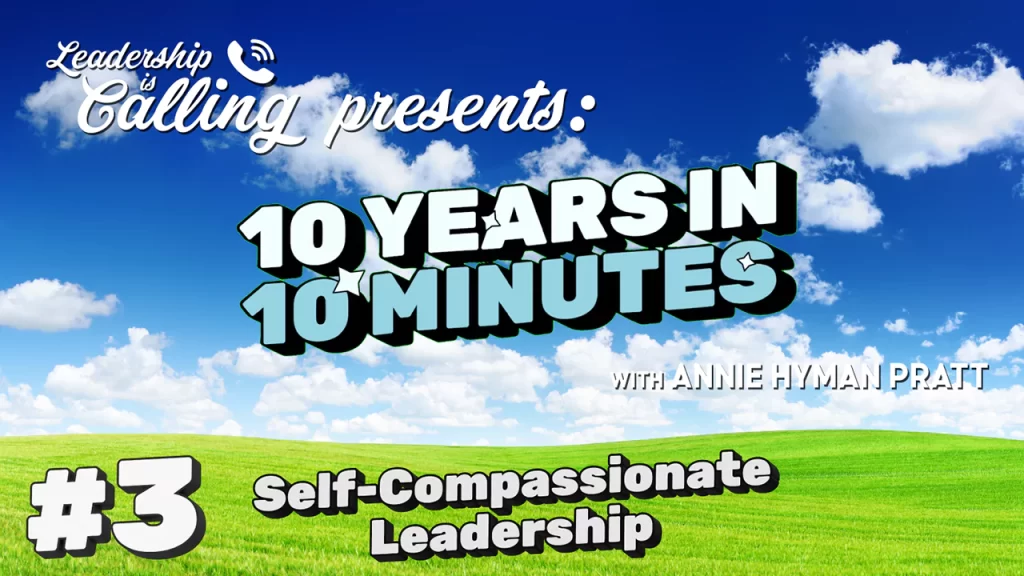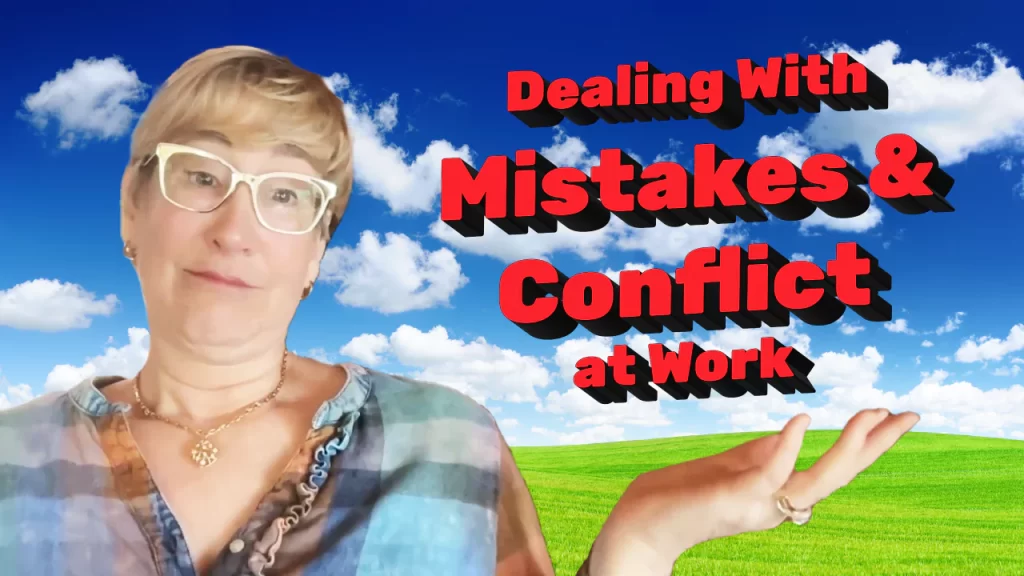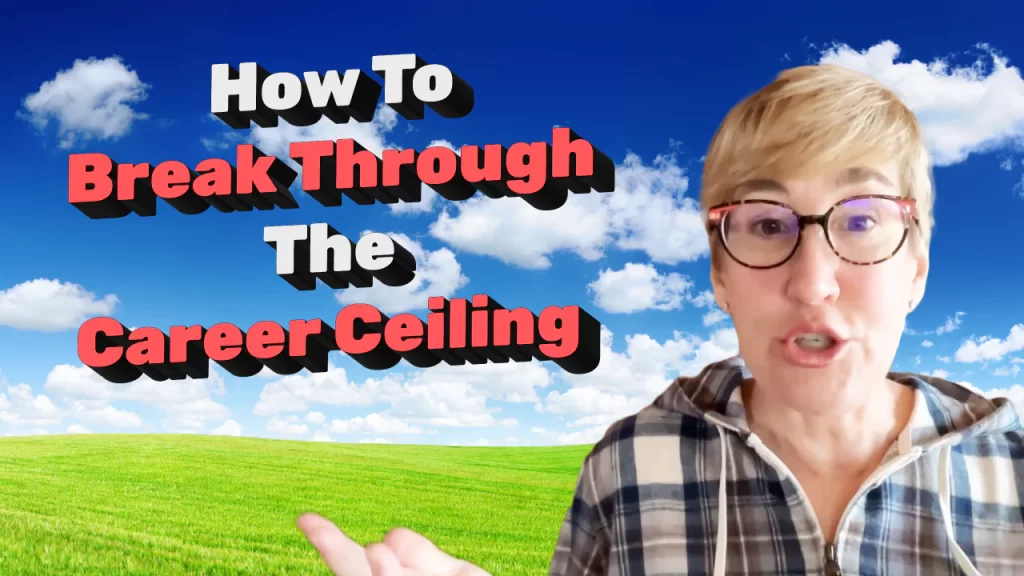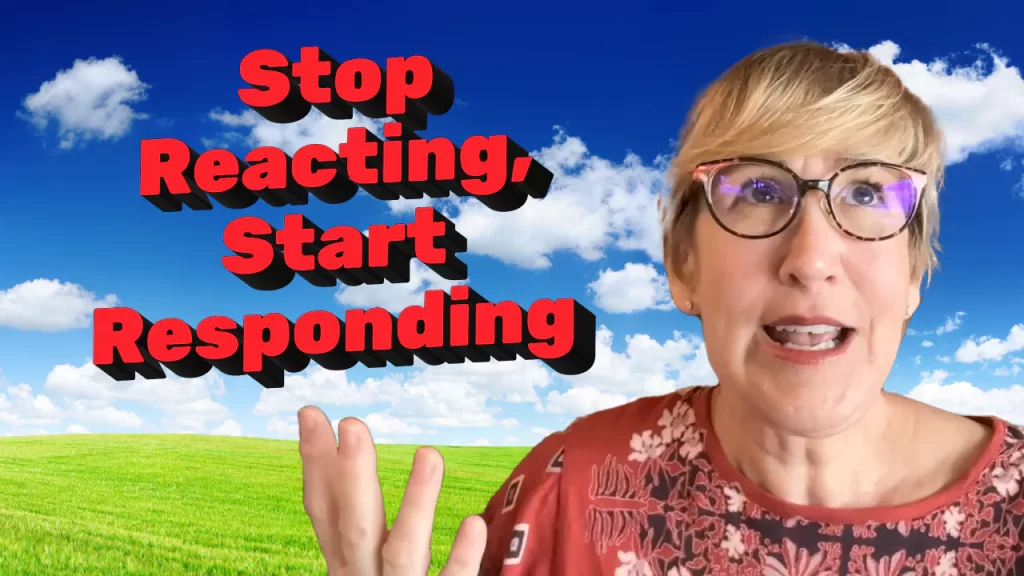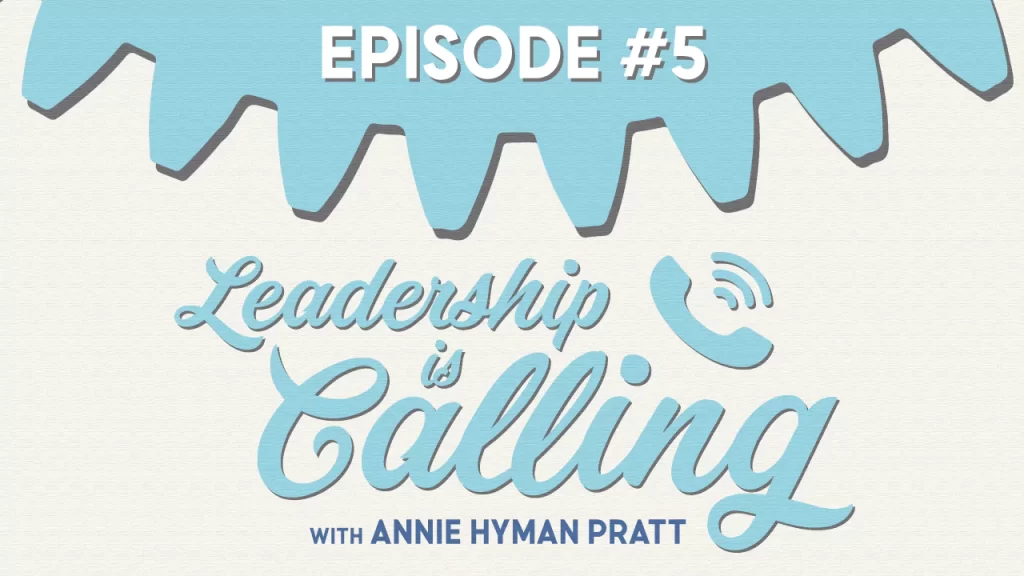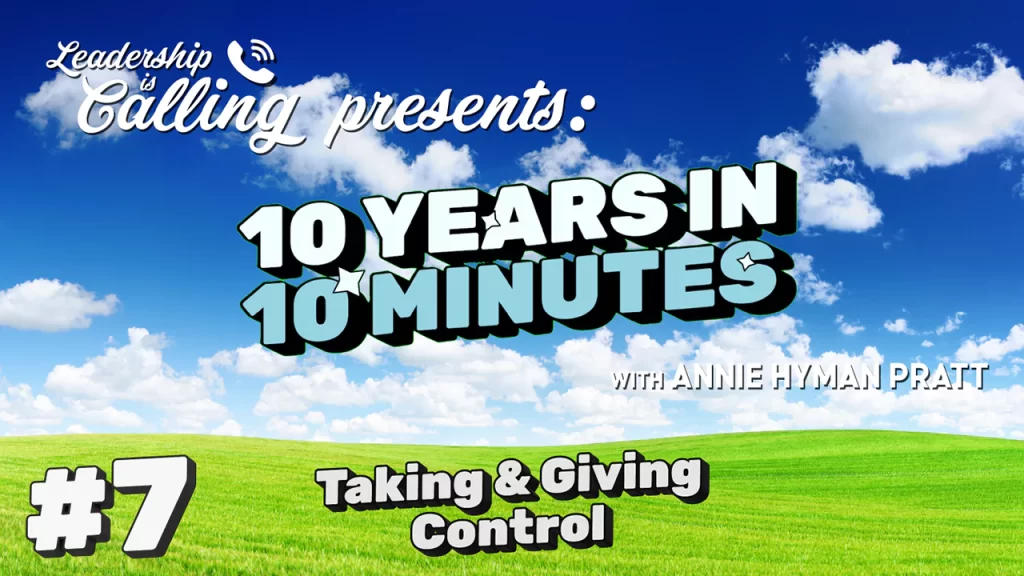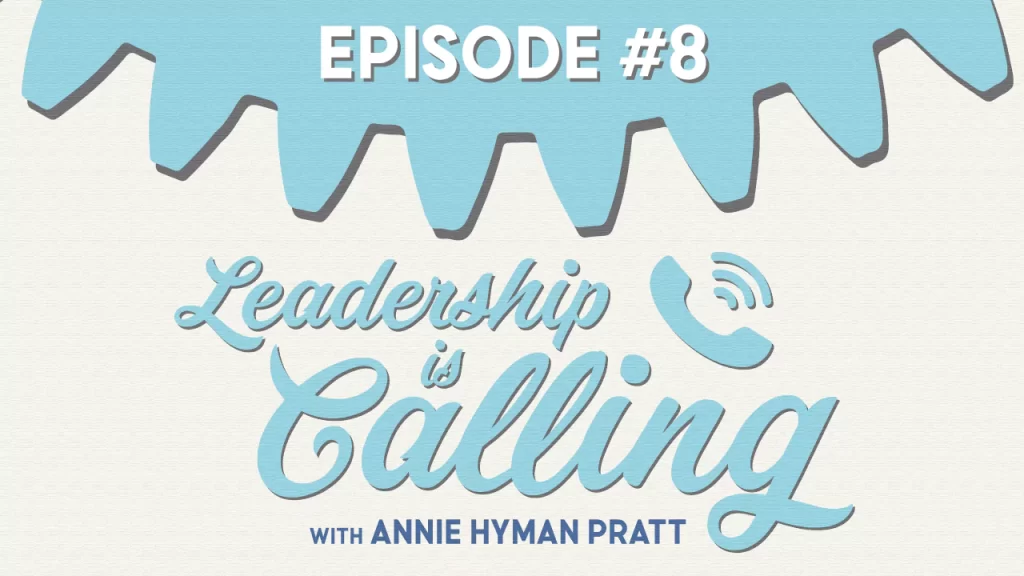Episode #23: How to Survive and Thrive After a Traumatic Business Event
Leadership is Calling Episode #23, 10 Years in 10 Minutes Series #12
Annie Hyman Pratt
- Description
- Transcript
How to Survive and Thrive After a Traumatic Business Event
“When we have traumatic business events, it’s kind of like the business or environment is on fire – you have to do something different and there’s not that many good options.” -Annie
Have you ever experienced a traumatic business event? If so, you know how difficult it can be to cope with the emotional and financial fallout. In this video, I will share my insights on how to survive and thrive after a traumatic business event. I will cover topics such as:
- How to deal with the initial shock and grief
- How to develop a plan for recovery
- How to rebuild your business
- How to prevent future setbacks
I will also share some inspiring stories of people who have overcome traumatic business events and gone on to achieve great things. If you are struggling to cope with a traumatic business event, I hope this video will provide you with some much-needed support and guidance.
Leadership Tip
Many businesses are currently facing traumatic and unexpected hardships, from economic downturns to inflation, pandemic aftereffects, political turmoil, climate events, and people management struggles. I liken these traumatic business events to a company’s “shore” being on fire, forcing them to abruptly leave their comfort zone and “jump into white water rapids” of challenges.
Enduring this traumatic period is about survival, not recovery back to how things were. I emphasize that going through these rapids can transform teams who stick together, make them stronger, and lead to new discoveries and opportunities they couldn’t have foreseen before. I encourage business leaders to have endurance, support each other, and utilize their teams’ unity to get through the hardships.
On the other side, they will gain new capabilities, innovations, confidence and be better equipped to take risks and handle uncertainty. But they first have to withstand the painful ride through rocky rapids as a cohesive, encouraging unit. I urge teams to endure the temporary trauma knowing it will make them more robust.
Key Points
- Many businesses are facing traumatic events right now with the economy, inflation, the pandemic, etc.
- Traumatic business events force you to make big, difficult changes quickly.
- Getting through this traumatic time is about endurance and survival, not recovery.
- By enduring the challenge together, teams can be transformed and discover new opportunities.
- The traumatic events can make you stronger, with new skills and innovations, if you can survive them as a team.
Related Resources
Get Support: Talk with a coach
Articles: How to Navigate the Unknown in Challenging Times
Related Podcast: How to Lead Intentionally in a Time of Stress
Downloadable Worksheet: The CCORE Empowerment Process

Auto-Generated Transcript – unedited version
How to Survive and Thrive After a Traumatic Business Event
So today I’m talking about something that is unfortunately super common right now, and that is traumatic business events. With the economy turning down pretty drastically, with inflation being up, with oh my gosh, you know, all sorts of things changing after covid, we’ve just been through covid, we’ve been through a lot of political turmoil, it just, we’ve been through all these natural disaster events, our climate just, you know, going not that well of all that kind of stuff is happening right now.
And businesses are definitely going through a hard time, and some of them are going through a hard unexpected time that I think about as an event. It’s like maybe their business was sort of going down in revenue a bit over the last couple years, but then right now it’s turned down really hard, kind of making it a big event. Other people have had things happen in the external environment, like people that are dependent on a company that is having major cutbacks, and suddenly, you know they had a lot of business with a big client, and now they don’t.
Other businesses are going through traumas that have to do with their people. This is, you know, we’re coming to the other side of the great resignation, but apparently it’s not exactly over. Like people have different expectations coming out of the pandemic about how they want to work than when they went in, and businesses are not totally ready to cope with that yet.
So we know of quite a few companies that are sort of struggling where the management and the team members are kind of like, you know, trying to find some kind of common ground for return to office, but they’re not finding it. It’s getting, it’s turning into big arguments and more people leaving and it’s just a really hard time.
So when we have traumatic business events, what that, how I, how I think of it is it’s kind of like the business or the environment, what not, it’s it all is kind of on fire. Like it’s on fire, like you have flames at your back and you have to do something different and there’s not that many good options. That’s what makes it so traumatic – if there were a lot of good options it wouldn’t really be, you know, it wouldn’t be traumatic.
Okay, but when there’s not a lot of good options, people have to make a drastic change, a big change, usually it’s a traumatic change. And I think of it in this case as they’re having to, you know, leave their current business. That’s this shore, right? They’re like they’ve got their own shore and their business is on it. They have to leave this and they have to jump into some big white water rapids.
If you’re a rafter, these are like class five rapids – they’re like a big deal, class ten rapids. I don’t even know if there’s such a thing, but the thing is, is that you, you’re gonna leave this trauma but you don’t get to just, you know, cruise. You don’t get to hop on a cruise boat. That’s not, that’s not what happens. So you have to jump into this kind of white water where things are gonna be worse or just as awful for a while while we are trying to get across this river and survive.
Okay, so all anybody cares about when they’re in this, in the white water rapids, is survival. It is super traumatic. You are not thinking about letting me choose which destination I’m going to. You’re just like I just want to get through this. And what people are usually thinking is I want to get through this and I want to recover.
So on this side people are mostly thinking that what’s available is recovery. We’re going to get through this really hard time and we’re going to come out okay. We’re going to get ourselves together, we’re going to build back a business, we’re going to, you know, serve our clients again, etc. And we’re gonna, we’re gonna wind up okay.
The thing is, when we go through big events like this, this shore is not recovery. That’s not what this is about because in these white water rapids we transform. We are so up against challenges that to survive we must transform. It’s kind of like the white water rapids of transformation. To survive this we need to do a lot of things differently than we’ve never done before.
We have to approach it differently, we have to have more endurance, we have to learn new skills, we have to scramble, we have to be okay with things not going well. We don’t have a lot of choices here, right? So we are going to go through a tough time and we are going to learn things we never knew we could do. It’s like that is the gift of this. The, the, the song or the quote of you know what doesn’t kill you makes you stronger – that is actually true. It’s actually very true.
And so we, if we can survive this, we are going to get a big payoff. We are going to be different people with different skills, different knowledge, different experiences. We are not going to be able to create and recover the same thing that we had. That’s not going to be it. We are not going to wind up in recovery here. We are going to wind up in discovery.
This is where when we get through something this difficult, we then are going to land in a new world with all kinds of new opportunities, things that we couldn’t have seen before, things that we wouldn’t have been strong enough before. We are going to learn things about, you know, our worlds and, and, and our teams especially if we go through this together, which we want teams to do. You know they come out on this side so much stronger and so much better at innovating, at taking risks, at having confidence.
So on this side what you get is a whole new world, one that you cannot predict when you’re going through here, can’t predict it here, can’t predict it when you’re in the rapids. You’re going to land and then you’re going to be like oh my gosh this is so different than I could have ever expected. And that’s going to be a really good thing.
So what I want people to take some heart with is this part is hard but it’s worth it. It’s like, you know, this part is we need endurance. It’s, you know, if you’ve ever been white water rafting you know that you, you can’t, you can’t just exit the boat anytime you want. You’re in it, like you know there’s nowhere to go, like you, you have to stay along for the ride. And that’s the part of if you can stay along for the ride and endure the emotions, endure the fear, endure the pain, and utilize each other supporting each other for, giving each other some encouragement, this is how groups get through really difficult times.
It’s actually when you’re in a really difficult time it’s easier to show up for somebody else than it is for yourself. Let’s say human quality works really well here. And so we want these teams to be able to come through because what they do get on the other side is extraordinary and worth it, you know. Are there some people who aren’t gonna, you know, jump into this white water rafter, the, into these same white water rapids? Yeah, they can jump off in another direction and they’re going to have their own rapids that might be different from the ones a majority of a team takes.
But nope, the point is once a traumatic business event happens nobody can stay here. This is over now. We have to move on to something that we don’t know how it’s going to turn out but luckily we’re human and we can get through a lot. And then we get to find out.
So that’s what I wanted to share with you today and I look forward to seeing you next time for our 10 years in 10 minutes talks. To learn more about this episode’s topic? Pick up a copy of my book The People Part at your favorite book retailer.



